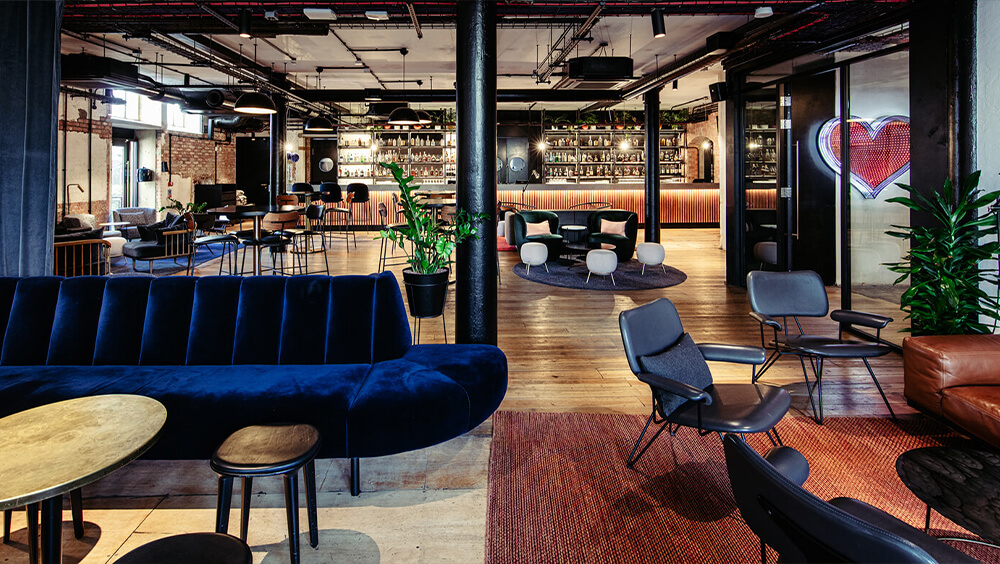Futurist and coworking thought leader Liz Elam explains why coworking is in the workplace hospitality industry—not the real estate industry.
This year I had a realization that coworking was frequently placed in the wrong vertical. I wondered if I could convince the coworking/flex operators to move out of identifying as real estate and move over to workplace hospitality.
I did some research on Elon Musk as part of my graduate certificate in foresight and I learned that he was working on changing the atmosphere of Mars. Yes, you read that right, he is working on changing the atmosphere of another planet in our solar system. Love him or hate him, he gets things done and I love that about him. If Elon can change the atmosphere of another planet, surely we can move coworking/flex into the workplace hospitality industry.
Newsflash: many already are, including smart leaders such as FORA, The Ministry and Industrious. As I explained my reasoning, many more have moved over: Uncommon, Spacemade and Hub Australia to name a few.
Not convinced? Hear me out.
Coworking is about providing an experience during the work day. Our primary job is to be of service to other humans. The primary role of the real estate industry is to transact: buy, sell, develop and manage property.
Where coworking differentiates is that we don’t always own the asset. Some brands do own their assets (Expansive and Uncommon to name two) but coworking operators tend to partner to do management agreements or hybrid lease/JV arrangements (see Industrious or Hub Australia).
There is no such thing as a workplace hospitality vertical to my knowledge. But we as an industry are creating one.
At conferences you see more and more emphasis on hospitality topics. Arguably the most important book of the year for most operators is Unreasonable Hospitality: The Remarkable Power of Giving People More Than They Expect by Will Guidara. Try to find a leader that hasn’t read it. At GCUC conferences around the world this year we encouraged our community to change their descriptor in LinkedIn.
A deeper dive…
Real estate is in the long game—they want to acquire and hold property for long term investment, generating rental income or potentially realizing capital appreciation. Real estate investors are looking to generate returns through appreciation of property values or rental income. They also tend to have brokerage services and property development. The hospitality industry is focused on the short game. We rent rooms, offices, meeting space or provide services for a limited time. We care about satisfaction and repeat business.
A key difference between real estate and hospitality is customer interaction. In hospitality we focus on maximizing revenue and encouraging interactions whereas real estate typically focuses on less frequent interactions. Ongoing interactions are most frequently outsourced to property management.

Why does it matter?
The real estate industry is in trouble. The writing is on the wall. The rise of hybrid work has led to a glut of office space. Companies no longer need massive office spaces because their workers simply aren’t using them.
Fueled by the WeWork bankruptcy, we’re going to see a correction or crash of the office real estate market. This will likely lead to a big problem in the banking industry as buildings where the economies of scale no longer exist will be turned back to institutions that don’t want them. Enter another correction/crash.
Conclusion
It’s hard to say exactly what led to coworking being in the wrong vertical but it does matter. Our primary business is not real estate, so we need to change that. If you’re in the coworking/flex space and this resonates with you, go to your LinkedIn and change your business description from real estate or executive office or whatever else it says to hospitality.
Reference
Guidara, Will (2022) Unreasonable Hospitality: The Remarkable Power of Giving People More Than They Expect


